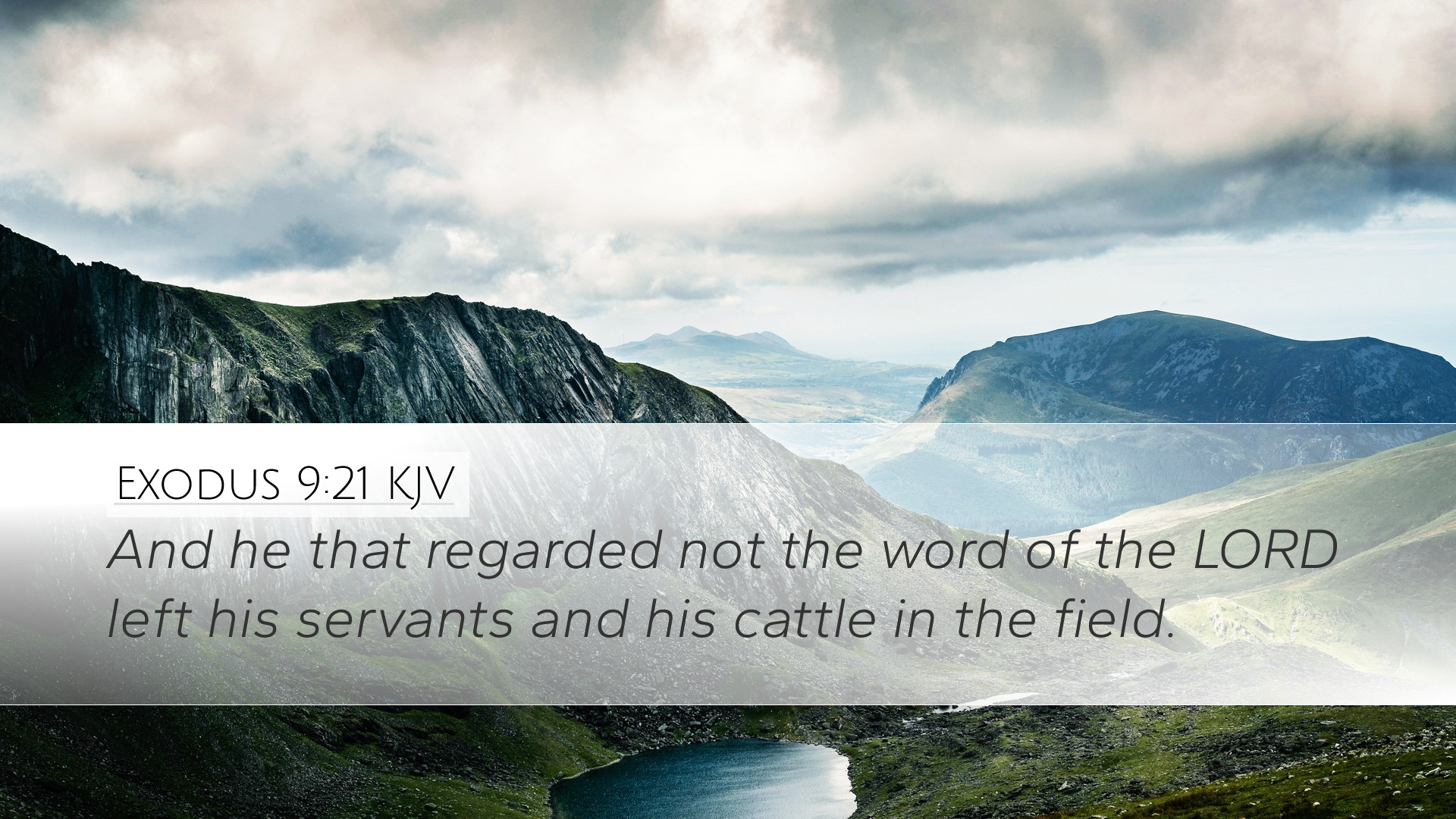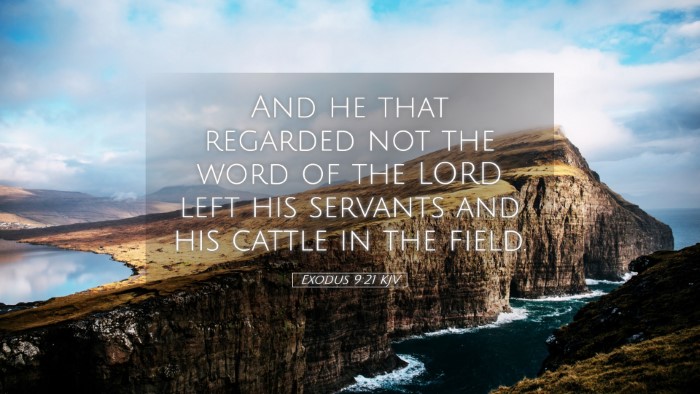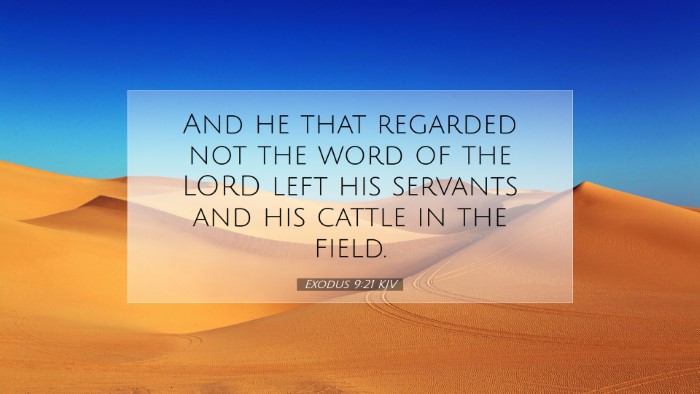Commentary on Exodus 9:21
Verse Overview: Exodus 9:21 states, “And he that regarded not the word of the LORD left his servants and his cattle in the field.” This verse emphasizes the consequences of ignoring God's word and the fate that befell those who did not heed the warnings given by Moses during the plagues.
Exegesis and Insights
This verse occurs during the account of the seventh plague, that of hail, which God unleashed upon Egypt as a judgment against Pharaoh and his refusal to let the Israelites go. The plague serves not only as a judgment but also as a demonstration of God's sovereignty and power over the elements.
Matthew Henry's Commentary
Henry highlights the division between those who heed the warnings of God and those who disregard them. He notes that “the warnings of God are often disregarded by those who, in their infatuation, continue in their rebellion.” The phrase “he that regarded not” signifies a willful ignorance and a hardened heart, illustrating the persistent state of Pharaoh and many Egyptians who saw the signs yet chose to remain obstinate. Henry asserts that such attitudes lead to dire consequences, as evidenced by the destruction that affected the cattle left in the fields.
Albert Barnes' Commentary
Barnes elaborates on the implications of this verse, stating that it reflects a deeper spiritual truth regarding the nature of obedience. He observes that the decision to leave the cattle and servants in the field, despite the looming threat of the hail, represents a profound lack of fear of God. He comments that the Egyptians were warned and had the opportunity to save their possessions and lives, but their refusal to act upon that knowledge signifies a grave folly. Barnes emphasizes the importance of heeding God’s warnings, illustrating that spiritual apathy can lead to physical and spiritual ruin.
Adam Clarke's Commentary
Clarke provides a broader context to the understanding of this passage by focusing on the implications for those who defy divine authority. He underscores that the devastation brought upon the Egyptians was a direct result of their obstinacy and refusal to obey God. Clarke claims that the permissiveness of God towards human rebellion—allowing the plagues to escalate—serves as a reminder of His patience but also of His eventual judgment. He stresses that true wisdom lies in recognizing God's word and acting upon it.
Theological Implications
Exodus 9:21 not only relates to the historical context of Moses and the Israelites but also serves as a poignant reminder for contemporary believers. This verse illustrates the dangers of ignoring divine counsel. There are multiple layers of theological understanding that arise from this moment in scripture:
- Divine Authority: The bold statement of disregarding the word of the LORD underscores the imperative nature of divine authority over creation and humanity.
- Human Responsibility: This portion of scripture emphasizes human responsibility in the light of God’s warnings. Ignorance of divine commandments, particularly in critical times, carries significant consequences.
- Judgment and Mercy: The balance of judgment and the offered mercy through warning signifies the nature of God as both just and merciful. The opportunity to escape the coming disaster highlights God’s character.
Practical Application
This passage can be pivotal in pastoral teaching and theological discussion. Here are some practical applications one might consider:
- Encouragement for Vigilance: Pastors can encourage congregants to be vigilant in their spiritual lives and to actively seek to understand and obey God’s word, particularly in times of trial.
- Teaching on the Importance of Obedience: Educators in the church could focus on lessons derived from this passage regarding the necessity and benefits of obedience to God's will.
- Reflection on God’s Patience: This verse invites both personal and communal reflection on the nature of God's patience and the serious consequences of taking His warnings lightly.
Conclusion
Exodus 9:21 serves as a stark reminder of the spiritual and physical consequences of disregarding God’s word. Through the insights of respected commentators like Matthew Henry, Albert Barnes, and Adam Clarke, we glean a multifaceted understanding that emphasizes human responsibility and the serious nature of divine messages. For pastors, students, and scholars, this verse challenges us to remain attentive to God's word, understanding that our responses—or lack thereof—have profound implications.


